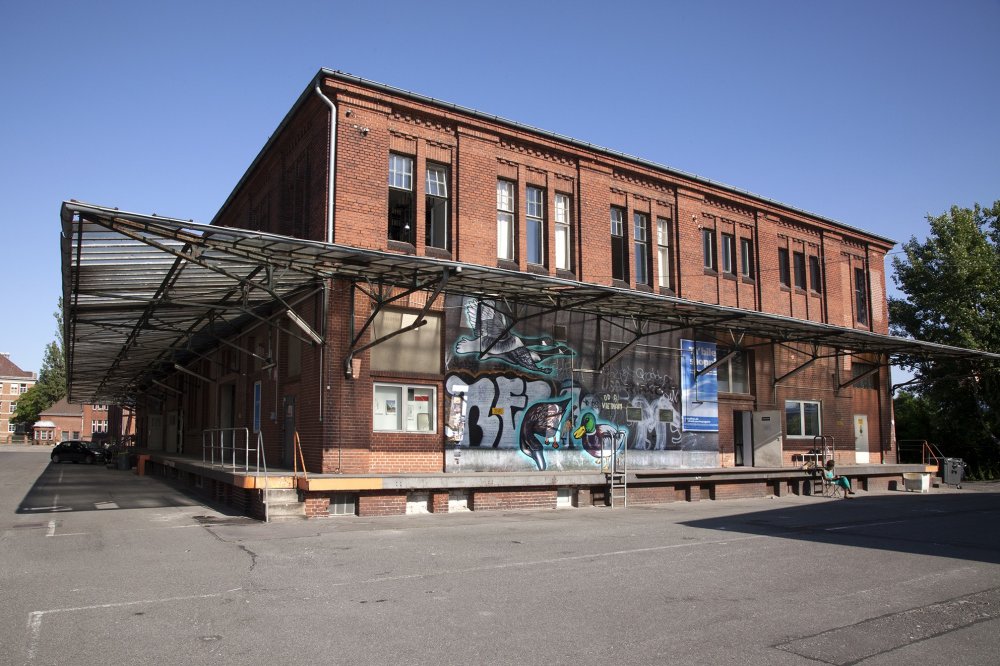
Founded in 2010 on the grounds of the historic Malzfabrik, District Kunst- und Kulturförderung offers an interdisciplinary think and work space for the collaborative intersection of art and other fields of knowledge. Located within a social, cultural and historical diversity of urban environments in the Tempelhof-Schöneberg area, an important focus of District’s cultural program is laid on the shared exploration of current developments out of this defined local situation and on the contextualization of contemporary artistic practice in urban space. To discover the politics, communities and narratives of our surroundings and to facilitate artistic and interdisciplinary projects to investigate, involve, intervene in and re-interpret these neighbourhoods is an important aim. The grounds for District’s activities are defined by an interest to think of the art space as place, where concerns, critique and ideas can be expressed and negotiated. Artistic experimentation and research is here linked with the effort to create environments which could accommodate different modes of engagement with necessary change towards more sustainable and fair ways of living. Taking its de-central location as conceptual premise, District engages with perspectives which are currently at the margins of political and cultural (self-)representation and provides a platform for the investigation of tactics of enunciation and infiltration. Collaborating with local and international cultural producers, other organisations and different audiences, District produces art projects, exhibitions, discursive and performative formats, workshops, interventions and performances in public space as well as educational activities. Having its base within architecture built for industrial labour at the turn of the 19th century, District’s program is closely connected with onsite artistic production. Through the studio grant for women artists and the studio program for young cultural producers who engage in conceptual, critical and investigative approaches, District builds a support structure for artists and opens room for long-term dialogues between artistic, curatorial, research and educational practices. Dedicated to the experiment as a mode of knowledge production, District follows an attitude to cultivate space for the unexpected and the paradoxical.

